Iran's Revolutionary Guard Launches Artillery Attacks At Erbil
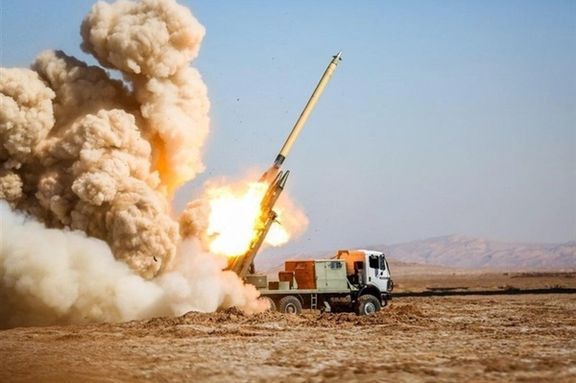
Iran's Revolutionary Guard (IRGC) has launched artillery attacks against Erbil, the capital of Iraqi Kurdistan, claiming it targeted “the strongholds of terrorist groups”.

Iran's Revolutionary Guard (IRGC) has launched artillery attacks against Erbil, the capital of Iraqi Kurdistan, claiming it targeted “the strongholds of terrorist groups”.
Tasnim news agency, affiliated to the IRGC, reported the attack on Wednesday, saying no details are available so far about possible fatalities and damages in the strike.
According to local Kurdistan officials, the artillery attack hit Barbazin heights, while four suicide drones also targeted Similan heights this morning.
In March, Iran fired missiles at Erbil. No one was killed but missiles did damage to some residential buildings. Iran claimed it used 12 ballistic missiles in that attack and targeted an Israeli intelligence center. At the time it was seen as a response to an Israeli airstrike in Syria that had killed two IRGC officers or to an suspected Israeli attack in February on a drone base at an airfield in western Iran.
The attacks on Erbil have taken place at a time when Tehran is demanding the removal of the iRGC from a US list of terrorist organizations amid stalled nuclear talks.
An exclusive Reuters Report said days later that the purpose of the missile strike might have been meant to derail a gas pipeline project to pump Kurdish gas to Turkey and Europe. A claim that was denied by Nour News, which is close to the secretary of Iran's Supreme National Security Council (SNSC), Ali Shamkhani.
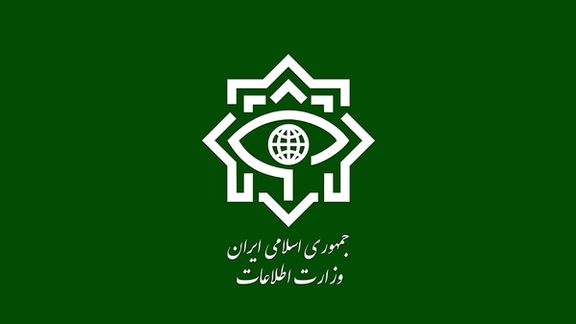
Iran’s Ministry of Intelligence has announced the arrest of two European individuals for promoting unrest and instigating chaos in the Islamic Republic.
The public relations office of the ministry said in a statement on Wednesday that the two Europeans, who had entered the country with the aim of provoking public outrage through changing the direction of normal popular demands into chaos, social disorder and destabilization of society, were identified and arrested by the intelligence forces.
The statement by the ministry did not provide any details about their nationality or how and when they were arrested, but apparently, they came from the same country.
It added that the two main elements of the mission -- organized by intelligence agencies -- were experts in the field of riot and instability and have experience in training their local agents in several countries over the years.
The statement also mentioned the Coordination Council of Iranian Teachers’ Trade Associations as one of the circles with whom the two had held meetings. The council has been the organizer of several rounds of nationwide protests since last year, prompting speculations that the announcement can be a measure to link teachers’ protests to foreign intelligence agencies to justify the heavy-handed crackdown.
The timing of the announcement also suggests that it can also be an attempt to exert pressure on European countries over the case of a former officials who is facing a court verduct in Sweden.
On Tuesday, a Belgian court also dismissed appeals by three accomplices of an Iranian diplomat who was convicted of plotting to bomb an opposition rally in France in 2018.
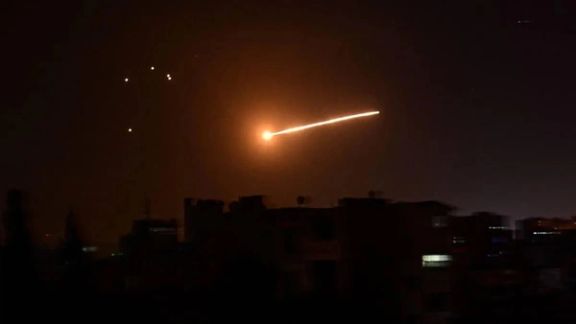
Syria said on Wednesday that Israel carried out missile strikes near the village of Hader in the southern Quneitra province, which borders Israel.
Syria’s state news agency SANA reported that an act of “Israeli aggression” was carried out with several surface-to-surface missiles over the vicinity of the Quneitra’s countryside in southern Syria, areas where Tehran-backed forces, including Lebanon’s Hezbollah, have put down a presence since deploying to help President Bashar al-Assad in the Syrian civil war which broke out in 2011.
No casualties were reported in the missile attack, which only caused physical damage.
Israel’s military does not usually comment on specific strikes in Syria but has acknowledged that it has conducted hundreds of attacks against forces under Iranian command in Syria to prevent the Islamic Republic from accumulating weapons and entrenching itself further in the war-torn country.
On Saturday, unknown aircraft attacked positions of Iran-backed forces in and around the eastern city of Deir ez-Zor for the second time within a week.
Last month, Israel allegedly carried out three strikes in Syria.
In March, an Israeli attack over Damascus killed two officers of Iran’s Revolutionary Guard.
On Friday, The Moscow Times, an independent Dutch-based paper, reported that while Russia has begun pulling out its troops from Syria to bolster forces in Ukraine, Iran forces and Lebanese group Hezbollah have reportedly taken over its bases.
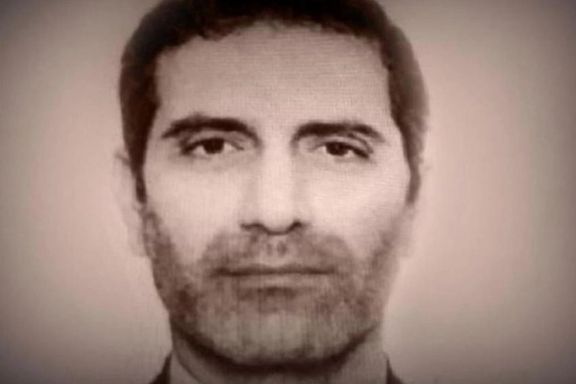
A Belgian court has dismissed appeals by three accomplices of an Iranian diplomat who was convicted of plotting to bomb an opposition rally in France in 2018.
Amir Saadouni (41), Nasimeh Naami (37), and Mehrdad Arefani (58) were arrested in Brussels in June 2018 for involvement in a bombing plot masterminded by Asadollah Assadi (50), the third secretary of the Iranian embassy in Austria.
Saadouni and Naami, a Belgian couple of Iranian origin, were carrying 500 grams of the explosive triacetone triperoxide (TATP) and a detonator in a toiletry bag in their car at the time of their arrest.
The bomb was intended to be used at a gathering of members and supporters of the exiled Iranian opposition group Mujahedin-e Khalq Organization (MEK) in Villepinte near Paris on June 30, 2018.
Arefani, a former supporter of the MEK, was arrested simultaneously at Villepinte, France.
The three have accepted their involvement in the plot but claim they were coerced by Assadi, their handler, and the Iranian intelligence to participate in it. Assadi has always maintained that he did not know the other three defendants.
Iran's foreign ministry spokesman Saeed Khatibzadeh late Tuesday condemned media coverage of the court's decision as an "orchestrated attempt" against Assadi and condemned his arrest and trial as a violation of diplomatic immunity.
The Antwerp appeals court has upheld Naami and Arefani's sentence of 18 and 17 years in prison but increased Saadouni’s sentence from 15 to 18 years. “The court finds the allegation by Saadouni and Naami that they assumed that the explosives would only cause noise and fireworks to be implausible,” the judgment handed down on Tuesday said according to De Morgen, a Dutch Flemish newspaper.
“Everything was meticulously prepared beforehand and the modus operandi to be used was also discussed in detail,” the court said while declaring that there is no doubt that Assadi and the three others worked for the Iranian intelligence ministry.
Assadi, the mastermind of the operation, was arrested in Bavaria, Germany, where he did not enjoy diplomatic immunity, while he was on holiday. German authorities later extradited Assadi to Belgium. He has not appealed his twenty-year sentence.
He is the first Iranian diplomat ever brought to trial in Europe for direct involvement in terrorism. The MEK in a statement in July 2020 alleged that Assadi was a senior official of the Iranian intelligence ministry and the station chief in Austria.
In October 2020 the Belgian Police released the minutes of a meeting with Assadi that indicated he had threatened that an unfavorable verdict in his case could entail possible retaliation by unidentified groups.
Iranian officials say there are no plans to trade EU citizens held in Iran including Ahmadreza Djlali (Jalali), a Swedish-Iranian doctor that Iran says it will execute soon on charges of spying for Israel, with Iranians held in EU countries such as Assadi in Belgium or Hamid Nouri in Sweden. Swedish prosecutors have requested life imprisonment for Nouri over his alleged role in a wave of prison executions in 1988.
The trials of the four suspects and the allegation that Iranian intelligence was behind the bombing plot continues to strain Iran's relations with European countries. Tehran has always dismissed the allegations against its diplomat and in July 2018 summoned the French and Belgian ambassadors and Germany's chargé d'affaires in protest to his arrest.
Tehran accuses European countries of sheltering the MEK which it has for decades persecuted as a terrorist group. MEK which carried out many terrorist attacks of its own in Iran, particularly in the 1980s, was designated as a terrorist organization by the US State Department in 1997 but was delisted in 2012 when it renounced violence.
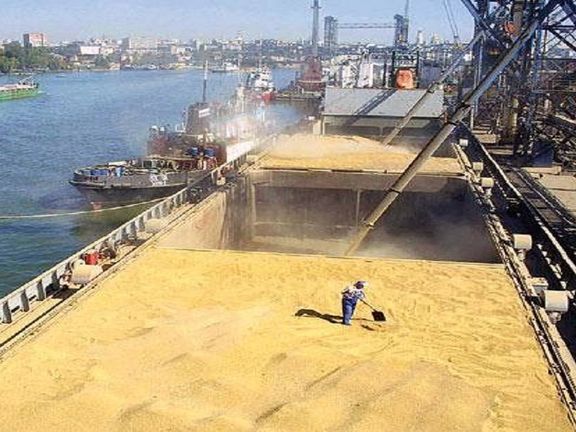
Iran must import at least seven million tons of wheat to meet its domestic needs until March 2023, the chairman of Iran's Grain Union said on Tuesday, amid rising bread prices.
Iran imported a record eight million tons of wheat in the previous year to March 2022 due to the drought that had a huge toll on domestic production, Kaveh Zargaran said in a conference.
He added that the projected imports would be part of a total of 25 million tons of grains, soybean meal and oilseeds.
The forecast seems plausible as it is close to figures announced by other officials in the sector, such as the head of the Flour Producers Association who said earlier this month that the country needs to import at least 20 million tons of grain this year, including six to seven million tons of wheat. Mohammad-Reza Mortazavi admitted that the country has never been so dependent on imports.
Iran, which has in some years been self-sufficient in the production of the staple cereal, is among countries in the Middle East whose production is heavily dependent on the amount of rainfall and has been suffering from a dry spell as authorities have predicted even less precipitation this year.
The importers are now facing extra difficulties as Russia's invasion of Ukraine has disrupted Black Sea grain shipments, increasing the global prices.
In March, reports revealed that Iran has signed a deal with Russiato import 20 million tons of basic goods, including vegetable oil, wheat, barley and corn.
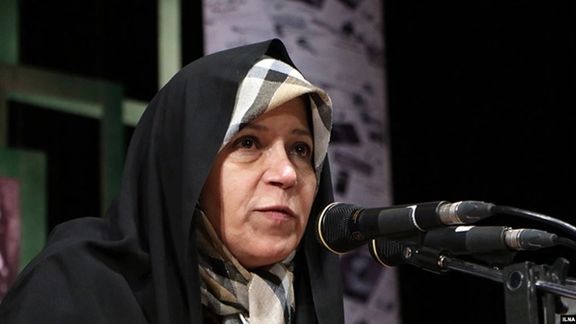
Former lawmaker and presidential daughter Faezeh Hashemi will be prosecuted for supporting US sanctions on Iran’s Revolutionary Guard and insulting the prophet of Islam.
Iran's judiciary spokesperson Zabihollah Khodaian said on Tuesday that the case over her recent remarks is ongoing by the office of the prosecutor general.
Iranian hardliners demanded that the pro-reform politician must be prosecuted for defending the terrorist designation of the Revolutionary Guard (IRGC) by the United States.
Fars news website affiliated with the IRGC claimed a petition for Hashemi to be prosecuted collected over 50,000 signatures.
Speaking on the social audio app Clubhouse, the political activist had said that removing the IRGC from the list of Foreign Terrorist Organizations (FTO) is not in Iran's interest. Negotiations to restore Iran’s 2015 nuclear deal came to a halt in March as Tehran demanded the IRGC be removed from the terrorist list.
Footage of Hashemi Rafsanjani also surfaced in media, talking about Prophet Muhammad and how he used his wife’s money to advertise Islam.
Hashemi is known for her critical remarks about the Islamic Republic, its leaders, and policies. Her father, who for decades was the second most powerful man in the Islamic Republic, who helped bring Supreme Leader Ali Khamenei to power in 1989 and allowed the IRGC to become an economic player in the country.